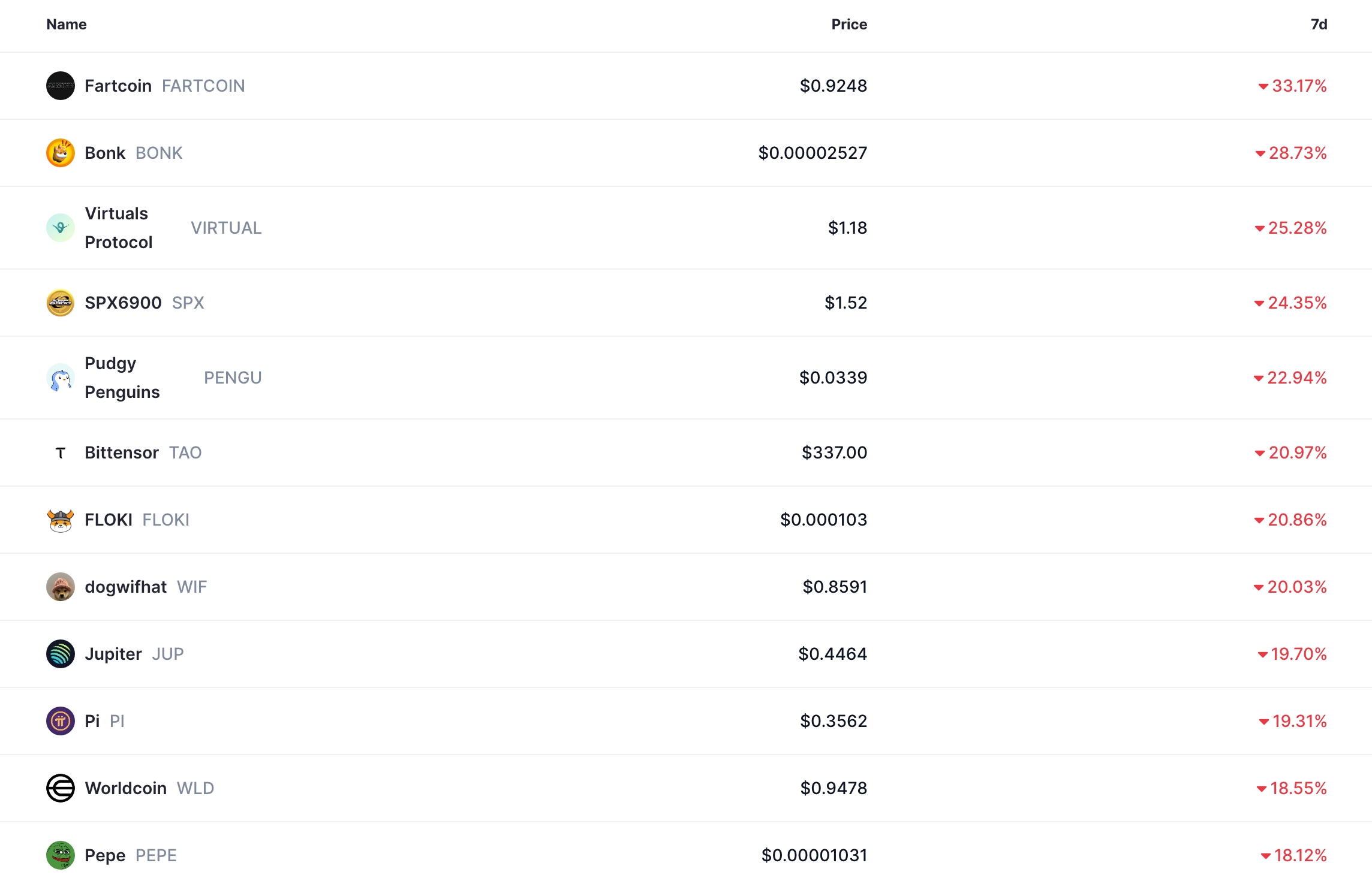Bitcoin and the crypto market are in the red today, here’s why
The crypto market took a sharp turn lower this week as a cocktail of weak economic data, renewed trade tensions, and heavy profit-taking sparked a wave of selling across Bitcoin and major altcoins.
- The crypto market continued crashing, with the market cap falling to $3.6 trillion.
- This crash happened after the weak nonfarm payrolls report on Friday.
- Forced liquidations have jumped to over $1.5 billion in the last two days.
Bitcoin (BTC) dropped from a record high of $123,200 in July to $112,107 at last check Saturday, while top altcoins like Pi Network (PI), Ethena (ENA), Conflux (CFX), and Fartcoin (FARTCOIN) have moved into a bear market after falling by over 10% from their July highs.

Weak NFP data and data chief firing
The crypto market crashed after the US published weak nonfarm payrolls data on Friday. A report showed that the economy created just 73,000 jobs in July, while the jobless rate rose to 4.2%.
Worse, the agency revised down the prior two months’ job additions by 260,000, meaning that the employment growth in the last three months averaged just 35,000, the worst level since the pandemic.
In a TruthSocial post, President Donald Trump lamented that the jobs numbers were “rigged” to make him and Republicans look bad. He then went ahead and fired Dr. Erika McEntarfer as the Commissioner of Labor Statistics.
Therefore, the crypto market dropped as investors remained concerned about the accuracy of US data, which help the Fed when delivering its interest rate decisions.
Crypto Market also crashed as the trade war intensified
The crypto market also continued to rally amid concerns about Trump’s trade war. He implemented tariffs on key trading partners, including India, South Africa, and Switzerland.
While the US has reached agreements with partners such as Japan, the European Union, and South Korea, it has maintained a base rate of 15%. These tariffs could contribute to the slowdown of the US economy, as this week’s jobs data showed. This also explains why the stock market crashed on Friday, with the Dow Jones and Nasdaq 100 falling by over 600 points.
Profit taking after a strong rally
Finally, the crypto market is crashing amid profit-taking and forced liquidations among market participants.
It is common for traders and investors to take profits after a strong surge in the stock or crypto market. This explains why Bitcoin and altcoins regularly pull back after a strong surge.
For example, Bitcoin has historically moved into either a correction or a bear market after reaching a record high. Most recently, it dropped by 12% after soaring to a record high in May. It also dropped from an all-time high of $109,238 in January to a low of $74,500 in April.
The cryptocurrency market is also experiencing a decline of forced liquidations, which leads to more selling pressure. Over $900 million worth of cryptocurrencies was liquidated on Friday, followed by $600 million on Saturday, according to CoinGlass.
You May Also Like

Solana CME futures trading volume surged 252% in July to $8.1 billion, the highest volume since launch.

Bolivia Calls Crypto ‘Reliable Alternative’ in New El Salvador Partnership Deal
